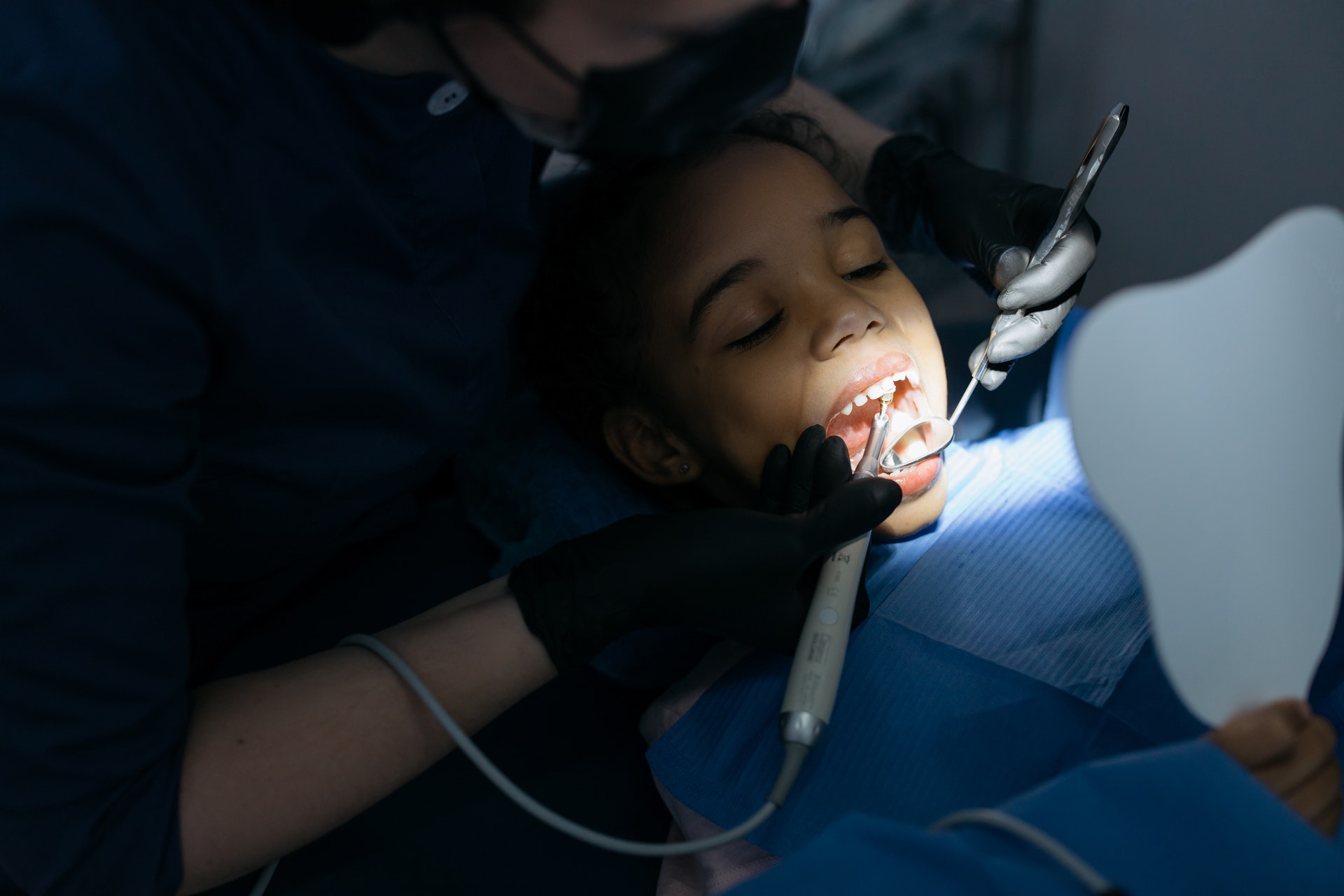A new study has found that there is a strong association between free sugar intake in early childhood and resulting cavities. This research shows the importance of younger children having a diet with limited free sugars. Therefore, children, as well as adults, need to try and limit their intake of free sugars, while maintaining excellent oral hygiene to limit the chances of cavities developing.
A new study has sought to evaluate the relationship between free sugar intake in early childhood and the development of cavities. Many people unknowingly have diets high in free sugars.
The research produced rather alarming results. Firstly, many children were deemed to be consuming more than the daily recommended free sugar intake. Secondly, many had cavities while at a young age.
What is free sugar?
The NHS defines free sugars as “sugars added to food or drinks, and sugars found naturally in honey, syrups, and unsweetened fruit and vegetable juices, smoothies and purées” [1].
Furthermore, the NHS recommend that free sugars do not make up more than 5% of the calories consumed each day [1]. The World Health Organization suggests that free sugars should not take up more than 10% of the calories we consume per day [2].
Free sugars are most commonly found in foods like sweets, chocolate, biscuits and fizzy drinks. Sugar is known to have a very poor impact on tooth, and is a common cause of tooth decay.
The study
The research involved measuring the level of free sugar consumption in children aged either 18 months or 4 years [3]. These children were enrolled in the ongoing Barwon Infant Study [3].
Diets of participants were monitored by researchers. They looked at the level of free sugar that was consumed each day, as well as the overall calorie intake of the children [3].
At the end, they were able to calculate the amount of free sugars consumed, and what percentage of overall calorie consumption was being accounted for by free sugars [3].
Then, to see if there was a connection between free sugar intake and cavities, the researchers accessed dental records. They sought to find out what impact free sugar intake had on cavities.
Unsurprisingly, the findings showed that free sugar intake had a negative impact on oral health, and those that consumed more free sugars typically required more treatment for dental caries [3].
The researchers recommended that free sugar intake should account for no more than 5% of calories consumed [3]. To their shock, almost two thirds of children aged 4 regularly exceeded this 5% level [3].
29.6% of children at 18 months exceeded this 5% mark [3]. Moreover, 63.3% of those aged 4 years old had exceeded the 5% mark [3]. It is unsurprising that those who were above the 5% mark required more dental treatment.
Moreover, the researchers found that between the ages of 18 months and 4 years, free sugar consumption increased a lot. This suggested that while as a baby, care is put into diet, this is not the case by the time a child is 4.
What this means
The findings suggest that there is a clear link between free sugars and the need to have cavities. It is unsurprising, given the unhealthy nature of the foods and drink which are high in free sugars.
For parents, this is a reminder of the importance of instilling healthy habits in their children. This can help them to avoid cavities. Moreover, it is also important that adults take this advice on board too.
The findings will be presented by Stephanie Heitkonig of the Royal Children’s Hospital, Australia [3]. This presentation will be part of the 100th General Session and Exhibition of the International Association of Dental Research [3].
Thinking points…
1) Regardless of the level of sugar that you consume, it is very important to attend regular dental check-ups. Without these, there is no telling how your diet is affecting your oral health. Therefore, it is important to attend a dental clinic for a regular check-up, where your mouth can be examined – with treatment if needed being recommended. You should attend the dentist at least twice a year for a check-up, consider booking an appointment now!
2) This article underlines the damage that sugar does to our oral health. Therefore, it is important to try and come up with practical ways of cutting down on your sugar intake. Try and drink water more, consume unsweetened fruit juices, avoid sweets and chocolate, and generally avoid unhealthy food where possible. If you have a family, try to instil a strong diet in them from an early age. As part of this, make sure you and your children attend your dental clinic regularly for check-ups.
What we offer at Taradale Dental
Taradale Dental is a Calgary dental clinic that offer many services, including regular dental check-ups, cavity fillings and root canals.
We are also pleased to offer some cosmetic services. Here at our Calgary dental clinic, we offer treatments like tooth whitening, Invisalign™ and dental implants.
It is important for oral problems to be addressed early. Any issues can be identified at check-ups. If further treatment is needed after a check-up, our patients receive a clear treatment plan that is suited to their needs. Early detection helps to prevent the problem getting worse.
The best way of avoiding extra treatment is to have strong oral hygiene. This includes brushing our teeth at least twice a day, flossing regularly, and getting a dental check-up at least twice a year. Avoiding sugary foods and drink and not smoking also helps.
Our Calgary-based dental clinic Taradale Dental follows the Alberta Dental Fee Guide. This means our prices are competitive, transparent and affordable.
We would love you to visit us here at Taradale Dental soon! You can see more about us by visiting our website https://taradaledental.ca.
References
[1] NHS. (2020). Sugar: the facts. Available: https://www.nhs.uk/live-well/eat-well/food-types/how-does-sugar-in-our-diet-affect-our-health. Last accessed: 2nd July 2022.
[2] World Health Organization. (2020). Healthy Diet. Available: https://www.who.int/news-room/fact-sheets/detail/healthy-diet. Last accessed: 2nd July 2022.
[3] Henderson, E. (2022). Study quantifies the effect of early free sugar intake on dental caries. Available: https://www.news-medical.net/news/20220623/Study-quantifies-the-effect-of-early-free-sugar-intake-on-dental-caries.aspx. Last accessed: 2nd July 2022.




[…] A New Study Has Found That There Is a Strong Association Between Free Sugar Intake in Early Childhood and Resulting Cavities. Click to Know More! […]